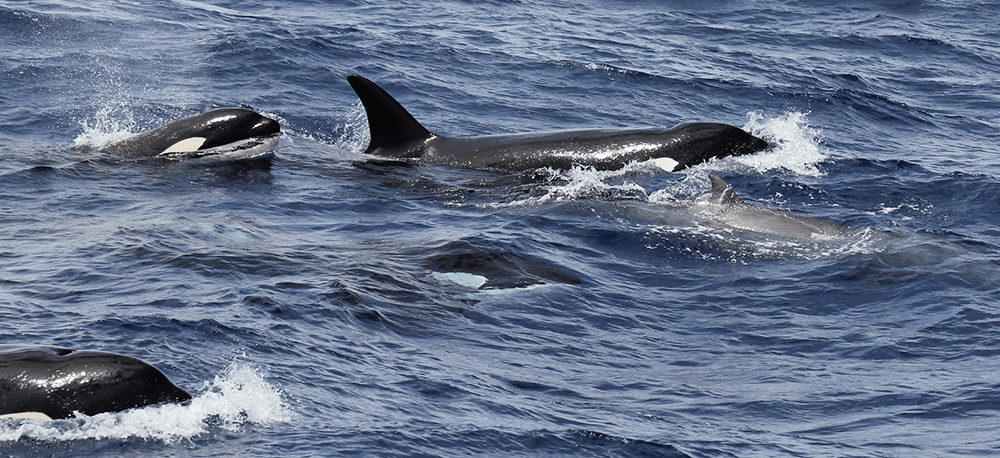Killer whales spotted hunting beaked whales for the first time

KILLER WHALES HAVE been caught chasing down beaked whales off the Australian coast and it’s got scientists in a frenzy. Curtin University researchers say it’s the first time such a hunt has been recorded, not just in Australia but worldwide.
The fact killer whales (Orcinus orca) eat beaked whales (Mesoplodon spp.) is nothing new; they’ve been observed feeding on carcasses in the past. What is new is that, until now, there have been no published accounts of the apex predators actively hunting and preying upon beaked whales.
Rebecca Wellard, a PhD candidate at the Curtin University Centre for Marine Science and Technology in Western Australia, is part of a team that witnessed the whale behaviour on four separate occasions between 2014 and 2016. Each time, they were following pods in the Bremer Sub-Basin, off the south coast of WA. The latest hunt, in February, was the most dramatic, said Rebecca.
“It was amazing to see all these animals just come in at once, and, not to be gory, but within 30 seconds they had peeled the skin off this beaked whale like a banana,” she said.
“It was incredible just to see them work together and to see how powerful they can be.”

Beaked whale being flanked by killer whales closely on each side. (Image: Rebecca Wellard)
What’s also fascinating about the findings, recently published in the journal PLOS ONE, is that it involves beaked whales in the first place. In Australia, it’s rare to see the smaller, dolphin-like species, as they’re elusive and can dive down to 3000m.
“So to see them at sea is special enough in itself, and then to actually see the killer whales predate and feed upon them is quite unique,” said Rebecca, whose research is sponsored by the Australian Geographic Society.
Although the diet of killer whales has been well documented in the Northern Hemisphere and the Antarctic, little is known about populations around Australia. Encounters with killer whales are rare and unpredictable in our waters, however the Bremer Bay area has a reputation for sightings during summer. The whales’ diets vary greatly depending on their habitat – however, worldwide, killer whales are known to eat humpback, gray and pilot whales, as well as seals, dolphins, turtles and squid.
There are 22 species of beaked whales and the ones targeted in these four hunts were juveniles and sub-adults, most likely Gray’s and/or strap-toothed whales. The discovery, Rebecca said, helps with the overall understanding of killer whale ecology in Australia.
“We’ve got a big killer whale puzzle and we’re still finding little pieces here and there.”
READ MORE:
- Rare whale washes ashore in Victoria
- White whale makes appearance off Byron Bay
- Seal takes a ride on a humpback whale




